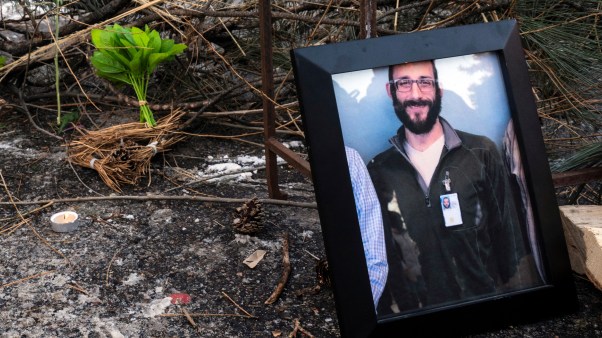Money is one of the most frequently discussed topics in Scripture—and one of the most avoided in the pulpit. Many pastors shy away from it for various reasons. They’re afraid of sounding greedy. They don’t want to be mistaken for a prosperity preacher who takes advantage of others. They worry about alienating newcomers by making them feel unwelcome or pressured. Some simply lack confidence in their ability to teach on stewardship, so they sidestep the topic altogether.
But that silence comes at a cost.
When we fail to address money from the pulpit, we leave our people vulnerable. Vulnerable to fear. To consumerism. To a shallow form of discipleship that never touches one of the most powerful resources in their day-to-day lives.
Preaching about money isn’t about fundraising. It’s about spiritual formation.
Where generosity begins
At the heart of biblical generosity is the character of God himself. The gospel begins with the most generous act in history: “For God so loved the world that he gave his one and only Son … ” (John 3:16). Giving is not a peripheral issue; it’s central to the story of redemption.
So when pastors teach on money, we’re not launching campaigns. We’re shaping disciples.
The apostle Paul spoke plainly and passionately about generosity. In 2 Corinthians 8–9, he calls it a grace, a privilege, and even a test of sincerity (2 Cor. 8:7–8). He urges believers not only to give, but to excel in giving as they do in faith, speech, and knowledge. He teaches that God loves a cheerful giver (2 Cor. 9:7). For Paul, generosity wasn’t an obligation. It was evidence—proof that God was at work in a person’s heart.
This is the heart of pastoral ministry. We are shepherding people into the grace of giving, the joy of trust, and the freedom of living openhanded lives.
Obstacles in the way
Some churchgoers carry baggage from manipulative appeals. Others have never been discipled in biblical generosity. Still others are simply afraid.
Martin Luther once said, “There are three conversions necessary: the conversion of the heart, the mind, and the purse.” If pastors only focus on the first two, we shortchange our people’s spiritual growth.
Pastors must also guard their own hearts. It’s easy to slip into jealousy or comparison, measuring our ministry by another church’s offering totals. When one church gives generously, another may feel inadequate. But giving is never about competing or comparing. It’s about keeping in step with the Spirit.
Many pastors find unexpected joy in teaching on giving—not because they love money but because they love seeing God’s people set free. There is deep satisfaction in walking with someone who begins to trust God with his finances for the first time. It’s one of the clearest signs of spiritual maturity.
John Rinehart, founder and CEO of Gospel Patrons, put it this way:
God raises up preachers and patrons, Christians with different gifts and different parts to play, but united around the same master and the same mission.
From transaction to discipleship
Generosity in the church isn’t a mere transaction. It’s a form of discipleship. It’s the fruit of belonging, worship, and mission.
Paul gives us a glimpse of this in Philippians 4:10, when he writes, “I rejoiced greatly in the Lord that at last you renewed your concern for me. Indeed, you were concerned, but you had no opportunity to show it.” That single verse captures the dynamic behind true gospel partnership: concern and opportunity.
As pastors, we help people connect the two. We help them see the opportunities to partner in the work of the gospel, and we help them feel the concern that fuels generous support. Often, people already want to give; they just don’t yet see where their giving can make a gospel impact. And that takes more than a pledge or commitment. It takes vision. Clarity. A sense of shared purpose and spiritual investment.
This requires flexibility. What moves one person to generous action may leave another unmoved, so there’s no one-size-fits-all approach. God stirs each heart in different ways, and wise pastors learn to resist formulaic approaches and instead pursue creative, Spirit-led invitations to give.
Jesus commended the widow who gave two small coins (Luke 21:1–4), and he rebuked a rich man who hoarded his abundance instead of using it for kingdom purposes (Luke 12:16–21). The difference wasn’t the amount. It was the heart.
Don’t be afraid to help people think imaginatively about their resources. Time, money, talents, property, investments, even business influence—ll of it can be leveraged for the glory of God.
From a scarcity mindset to a kingdom mindset
One of the great pastoral tasks is helping people move from a scarcity mindset to a kingdom mindset. We are not orphans; we are beloved children of a generous Father.
In 1 Kings 17, we read of the widow of Zarephath. Down to her last meal, she chose to give her flour and oil to feed the prophet Elijah. She risked everything, and God miraculously sustained her through the drought: “The jar of flour was not used up and the jug of oil did not run dry” (1 Kings 17:16).
When we step out in faith, God’s provision meets us. C. S. Lewis once said, “Relying on God has to begin all over again every day, as if nothing had yet been done.” That’s the kind of trust we’re called to cultivate in our congregants. A daily dependence. A lived confidence that God both guides and provides.
But before we can call others to live generously, we have to examine ourselves. Ask yourself the hard questions:
How do I relate to money?
Have I surrendered my finances to the lordship of Christ?
Am I leading my family in generosity?
Jesus said, “You cannot serve both God and money” (Luke 16:13). It’s not just a financial warning. It’s a spiritual reality. And our people need to see us model a better way: We must lead with transparency, courage, and expectant faith.
Fuel for the mission
In a world at war with brokenness and sin, generosity becomes ammunition for mission.
Ross Lester, a pastor in Austin, reminded an audience once that just as World War II’s Allied supply lines sustained the frontlines of battle, today’s givers support the frontlines of church planting, evangelism, discipleship, and mercy ministry. We must not treat generosity as a back-office concern. It is mission critical.
Pastors are called to build supply lines—through clear communications, relationships, and opportunities—that mobilize the church to reach the world.
Consider Oskar Schindler, who spent his entire fortune saving Jewish lives during the Holocaust. That kind of sacrificial giving reflects the heart of Christ, who gave all for the sake of others. Our legacy in Christ is not what we accumulate, but what we give away.
Eternal return on investment
In business, ROI—return on investment—is king. But in the kingdom of God, the return is far greater: the glory of God and the salvation of souls.
Success isn’t measured in dollars but in faithfulness.
As pastors, we are not fundraising professionals. We are gospel heralds calling people to live like loved children, not fearful orphans.
No one ever out-gives God. No one ever regrets living generously.
Jesus is the treasure. When we truly grasp this, giving becomes more of a joy and less of a burden. It becomes an act of worship, a tangible expression of trust, and a participation in God’s own generous nature.
Let’s teach our people not just how to give but why: because God is worthy, and because the world needs to see what radical, liberating, unselfish generosity looks like.
“Where your treasure is, there your heart will be also” (Matthew 6:21).
Let’s help them treasure Jesus.
Shaun Garman is the president of One Gospel Network, as well as a pastor, speaker, and church planting coach.









